This present moment used to be the unimaginable future...
-
Ships in 3 to 4 weeks
Details
Description
SKU: BR.EB-9377
Composed by Christian Mason. Chamber music; stapled. Edition Breitkopf. World premiere: Paris, Cite de la musique, January 14, 2020. New music (post-2000); Music post-1945. Full score. Composed 2019. 24 pages. Duration 20'. Breitkopf and Haertel #EB 9377. Published by Breitkopf and Haertel (BR.EB-9377).ISBN 9790004188477. 9 x 12 inches.
Commissioned by the Kolner Philharmonie (KolnMusik) for the "non bthvn projekt" 2020 and the Cite de la musique / Philharmonie de Paris Dedicated to Arditti Quartet Each movement of this quartet explores a single state, its lights and its shadows. Each movement, you could say, is a moment . And these moments could last for more or less time without compromising their essential nature. The processes could be extended or compressed, repeated or reversed, but the core ideas - if they are ideas, but maybe they are simply experiences? - are what they are. Despite this, the precise sequence of movements matters a great deal. Heard together they do articulate some kind of linear narrative, maybe even a metaphorical journey (albeit a circular one where the arrival might, who knows, prove to be a new departure). One situation gives way to another and instrumental relationships within the quartet vary, but ultimately the imaginative impulse behind the piece preferences states of unity. Whether or not this unity is expressed texturally - sometimes literal unisons pervade, but not always - there is generally a sense that even seemingly diverse aspects relate to a fundamental condition of concord: a conscious limitation in the pitch structure to spectral emanations of the root notes E-flat and C. At the opening this is unambiguously audible in the perpetual alternation of these two notes in the low cello register. Later the two spectra are woven into a micro-tonal 'double-spectral-mode' (derived from the first 24 partials of the C and E-flat fundamentals), which defines the subtle melodic inflection of the second movement, and the never-quite-chromatic ascending scales of the third. For now this feels like a rich source of melodic possibility, so far only just glimpsed... And why the insistence on E-flat? Probably by way of historical anecdote. Apparently Karl Holz (a member of the Schuppanzigh Quartet) said to Beethoven: We performed your Quartet in E-flat Op. 127 in his [Weber's] honour; he found the Adagio too long; but I told him: Beethoven also has a longer feeling and a longer imagination than anyone standing or not standing today. - Since then, even Linke (another member of the quartet) can no longer stand him: we cannot forgive him for this." Listening again to Op. 127, in light of these comments, I was struck by the opening moment: the unfolding of an E-flat 7th chord over the course of a few bars. Every time I hear it I find myself wishing that Beethoven would have lingered longer there, without resolution or progression, just enjoying that sonority. And maybe - why not? - tune the 7th naturally. And what would it be to stretch that moment into an entire piece? What would Weber think of that?! In the end I was not so extreme in my self-limitation, and other concerns took over, but it was from these thoughts that the composition process began... Lastly, about the title: it comes from a book called 'The Clock of the Long Now' by Stewart Brand, published at the turn of the millennium. It's about the creation of a thousand-year clock to embody the aspiration to thinking in terms of longer time-spans than are presently habitual. If the music of Beethoven embodied a 'longer' feeling and imagination than some of his contemporaries were able to appreciate, what is our relation to time now? Longer or shorter? Maybe it depends who you ask... It's probably more extreme in both directions: attention spans might be diminishing in the digital world, but conversely there is an awareness of distant pasts and potential futures which would have been inconceivable at the time of Beethoven. In any case, the interesting thing is to ponder how societal conditions, assumptions and expectations might - whether consciously or unconsciously - influence the time of art, for listeners and creators alike. And what if time is running out? (Christian Mason)
World premiere: Paris, Cite de la musique, January 14, 2020".
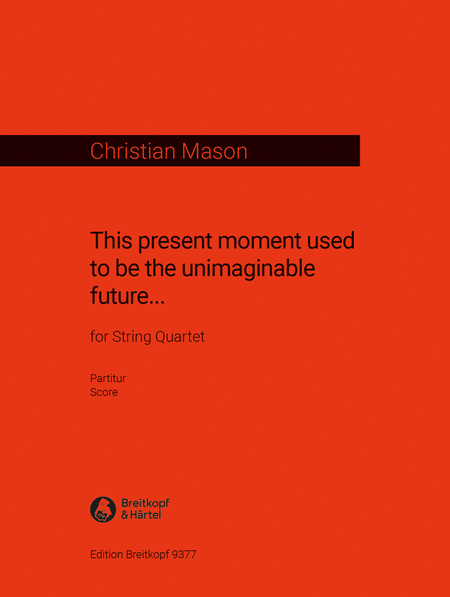
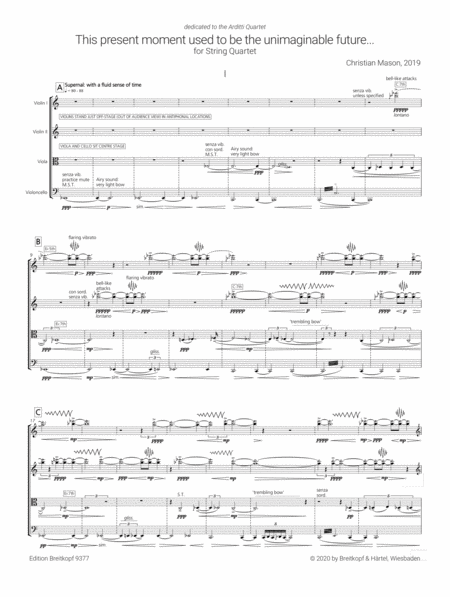
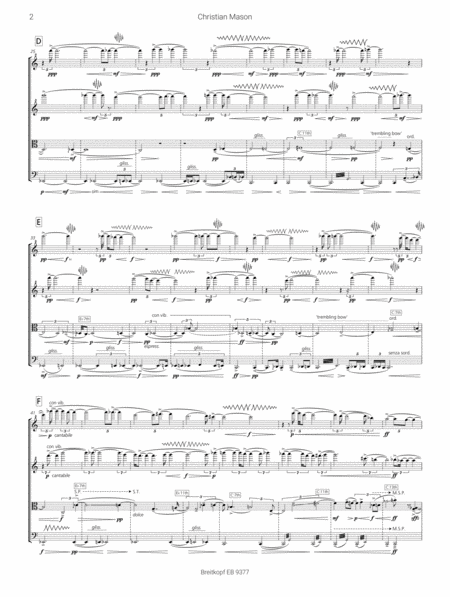
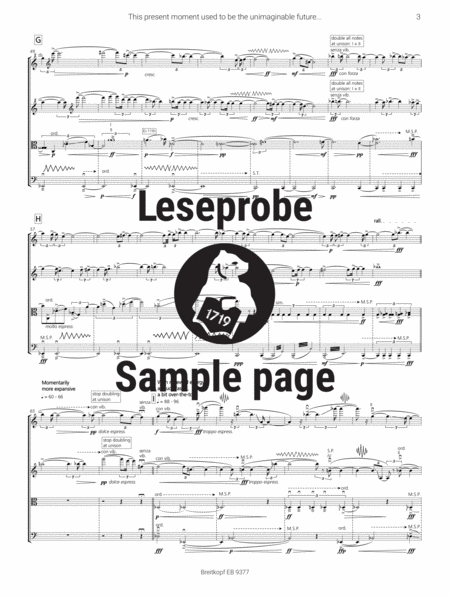
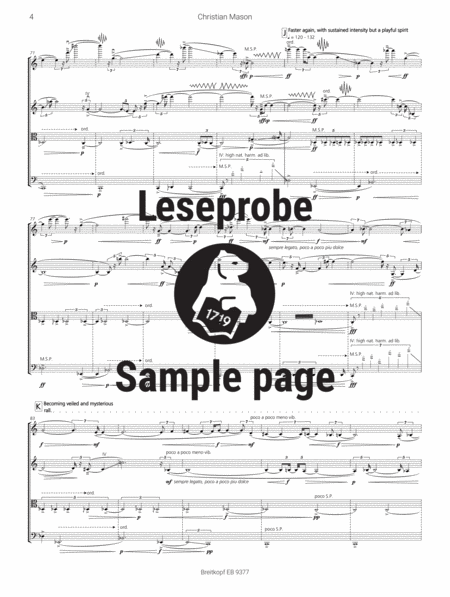
 Share
Share